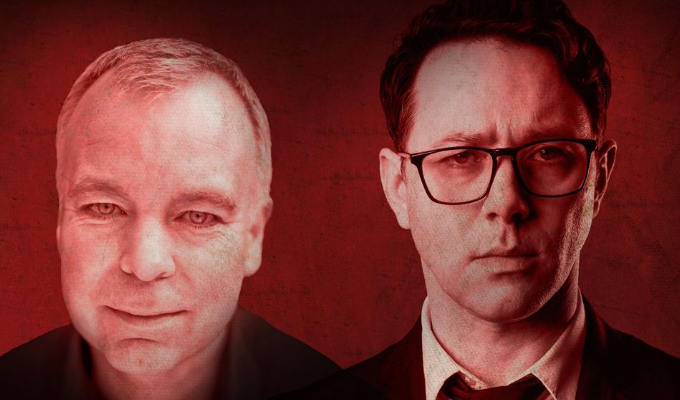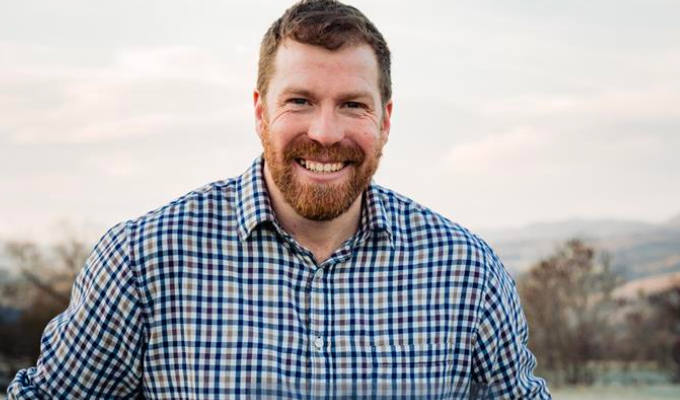The sound of no hands clapping
Diane Spencer on playing to tiny audiences
A man wakes up from a coma, to an empty, evacuated London city. He walks around for five hours, shouting down the echoing streets: ‘Stand up comedy on tonight, two-for-ones on the door,’ sticking up hastily photocopied posters onto abandoned buildings, tucking cheap flyers into the windscreens of smashed, deserted cars.
That night he paces up and down in a pub toilet, sweating, reciting, the words, coming then going out of his dark, confused mind. Finally he steps up into the light and performs ten minutes to an empty room, still in his backless hospital gown.
It is imperative that comedy has an audience. There has been some interesting debate on elitism versus catering wholeheartedly to the crowd, and although one can always argue you must create for yourself first, it is worth bearing in mind that somebody else has to take time to listen to what you have created – even if some punters are more keen to get plastered and glue themselves to another human being.
But a comedian needs the attention of an audience, it is part of the fabric of the work.
At 10pm, during a freezing cold night at the New Zealand Comedy Festival, in a poorly signposted, underground concrete venue that would give Josef Fritzl the horn in, I played to six people for an hour. Line after line hit the floor without a sound.
Punter Gavin, confusing the intimate nature of the crowd as a signal for a free-for-all, chipped in at every line. I tried to banter with him, till he said he was a ‘sperm-aholic’, and his girlfriend said: ‘You’re a cunt.’. This broke into a yowling domestic situation with four forced, embarrassed spectators and me as the bewildered, spotlit referee. I announced goodnight and quick as a flash, fled out the door with my friend.
As we clacked under the streetlights, she said: ‘That was a train wreck, darlin,’ and my stomach shut down for the rest of the night, alcohol did nothing.
The next night, 15 minutes before the start of the penultimate performance, we had no walk-ins. That day’s flyering had produced nothing but numb fingers, wind-blasted face and an intimate knowledge of one man’s bathing experience at the Salvation Army Hostel.
Two sad prepaid punters sat in the front row. I didn’t know whether the tear in my eye was from the smell of pickled onion coming from the Couch or despair. The producer was there, and she said that two people had still paid and deserved a performance, which no doubt made sense in her mind, but sounded like moon logic to the pile of cold spaghetti that was once my brain. And here is my dark secret: I seriously contemplated pulling the show. Nemesis swallowed my self-esteem and spat back the awful question: what am I doing this for?
I always find the most frightening films to be the ones where there is no one out there, whether due to virus, evacuation, devastation or monkey men. Remember the relief experienced by Vincent Price (and latterly Will Smith) when they found one other living human being in The Last Man On Earth (I Am Legend)? Is that the mentality we should adopt? Not necessarily. Would it be useful? Potentially.
It is hard to feel glee at an audience of two per cent of the venue capacity, after a long day of seeing hundreds of people in the street, and have them ignore you, or potentially worse, take a flyer, walk five steps and drop it.
There are coping mechanisms for playing into the silence. First relax and realise that your situation may have potential. I had developed the habit of personally introducing myself, so we were all on first-name terms (Angela was right, though, Gavin was a cunt).
Had we have had time, there was the thought I might re-arrange the seating and do something my venue manager and I chirpily entitled ‘group’. Two people may not produce the volume of laughter required to necessarily build a comedian’s confidence, but this is where eye contact and an acknowledgement that maybe things should be treated in a special sense can work. It turned the rather harsh concrete bunker into a cosier space when we ditched half the chairs and I sat down, drinking a beer and chatting amiably like you would round a pub table. If there’s only two, and you’re in a relaxed mood, you might as well offer to get a round in.
Comedians playing such small audiences need to be aware aware that a joke with a violent, hardhitting punchline that in ‘normal’ circumstances would be met with laughter and cringe, might only be met with cringe. Adjust accordingly, unless they laugh wildly, in which case, go nuts: they’re as warped as you are.
Although this is applicable to all gigs, nowhere will this be felt more than the upcoming Edinburgh Fringe, where battle scars will be drawn on comics’ faces. If you are a comedian facing the silent moments of dark doubt before the show, remind yourself of the better times, of the potential to adapt, of the strength you will hopefully gather from getting through this – if none of that works, shut down the murky part of your brain somehow (vodka cranberry please) and use the night to practice your routine or riff some new material around old themes.
If you are doing a good show, word will spread and your audience numbers will increase. If not, you can always take solace in the fact that you have come through the other side, and things will not always be that bad. If this is what you want, then plough on and remember: you can return from the silence.
As our man, in the backless hospital gown reaches the end of his lonely ten-minute set, the door to the pub creaks open. Our man freezes in terror, staring out into the blackness beyond the poorly rigged lights. Movement. In staggers another person, barely recognisable as a human being; emaciated, confused and in his bony, bruised fingers, he’s gripping a flyer.
The emaciated shadow man moves rigidly through the upturned chairs and dust-covered tables. Our man watches, in astonishment from the stage, the hairs on his uncovered bottom stand to attention in the breeze from the door. The shadow man sits down in his dried, blood-covered rags, right in the front row, and stares upwards at our man. The comedian frantically starts speaking, he’s going to do it all, he thinks, every joke he’s ever written – and then he’ll improvise! He’s going to perform for life - this is his moment!
The shadow man watches the frantic man’s lips move in the light; the high-pitched buzzing from the explosion, the only sound left in his ears.
Published: 5 Jun 2009






